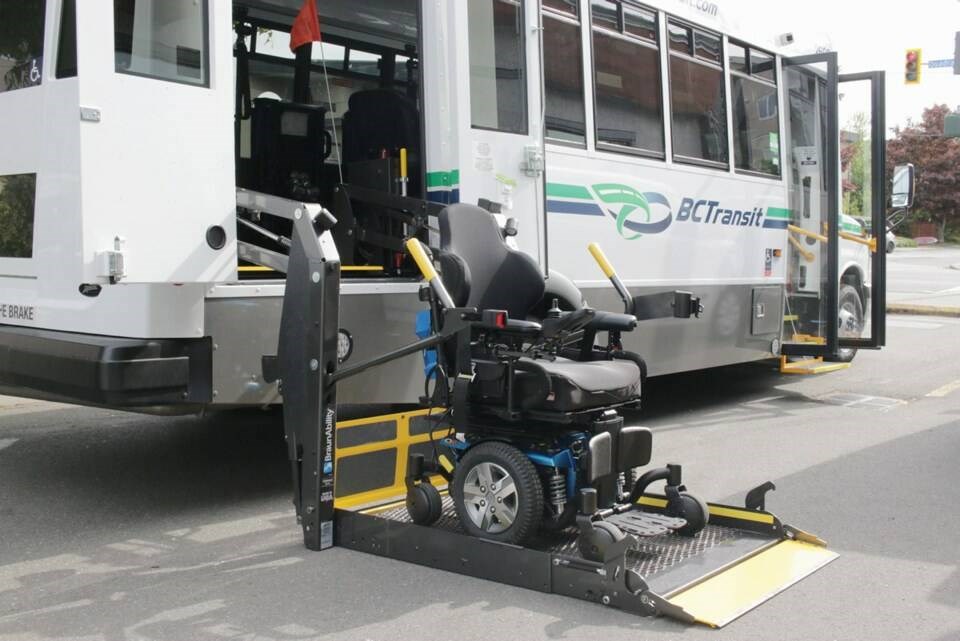Ellen Tarshis, executive director of Community Living Victoria, said changing the reservation system and re-routing everything to Transit’s call centre — and a switch to using more taxis recently — are affecting many clients with intellectual disabilities who attend community inclusion, employment and youth programs in the region.
She said most of the disabled clients use HandyDART to access services, but lately they’ve been arriving by taxis at Community Living Victoria on Cedar Hill Cross Road in Saanich.
B.C. Transit said in statement on Thursday the HandyDART reservation system has been temporarily taken offline “out of an abundance of caution” due to a recently discovered software flaw that has also hit many federal government services.”
“Our IT team is working on the issue,” Transit said. “The temporary shutdown was done to ensure our customers’ information remains safe and secure.”
Transit has issued several disruption notices for its regular bus service each day over the past month, and earlier this month took down all printed schedules at bus stops, saying at the time a driver shortage has made it difficult to judge bus arrival times.
The HandyDART online reservation system, which has been down for nearly two weeks, is now being handled through a call centre. But the timing of pickups and dropoffs is often not as accurate for those who rely on it.
“It’s having a big impact right across the region,” Tarshis said. “There are hundreds of people with disabilities that go to community inclusion and other programs.”
Tarshis said some clients are arriving too early by taxi, before the Community Living Centre is fully staffed, which can cause stress for those with intellectual disabilities.
“This may not to be difficult for you or I, but for some individuals, it can have their whole day thrown off … their routine is uprooted and it is important because routine keeps order in their lives.”
HandyDART is a door-to-door shared-transit service for people with permanent or temporary disabilities that prevent them from using fixed-route transit without assistance from another person. It’s a heavily used service for those needing to get to medical appointments, go on outings or buy groceries and other necessities.
The system has introduced 29 speciality buses over the past two years, with 16 hitting the road in June.
The 18-seat buses are valued at about $200,000 each. The federal and provincial governments split 80% of the costs of the latest fleet while the Victoria Regional Transit Commission covered the remainder.
Jean Barnes, president of Unifor 333 B.C, which represents unionized transit employees — including HandyDART drivers — was told by B.C. Transit on Wednesday that it is actively hiring drivers, and is currently down six drivers.
Barnes said B.C. Transit has been using taxis to offset the shortage of HandyDART buses for some time, but could use more of the buses.
Transit said Thursday there are no shortages of buses in its system. “We regularly use taxis to supplement the service, and have for decades,” the statement on Thursday said. “We are not currently missing any service due to lack of drivers. We are actively recruiting and have been for months, but this is not causing an impact to service.”
B.C. Transit employs just over 1,000 people, including about 550 bus drivers in Greater Victoria’s regional system.
It issued a mandatory proof-of-vaccination policy Oct. 8, requiring its drivers, mechanics and staff, as well as those working for B.C. Transit’s operating companies and contractors, to have two doses of COVID-19 vaccine by Nov. 29.
It said earlier this month that 98% of its employees have confirmed they are fully vaccinated against COVID-19, but did not give specifics on how many were drivers.



